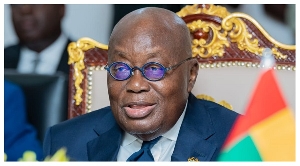- Home - News
- TWI News | TV
- Polls
- Year In Review
- News Archive
- Crime & Punishment
- Politics
- Regional
- Editorial
- Health
- Ghanaians Abroad
- Tabloid
- Africa
- Religion
- Election 2020
- Coronavirus
- News Videos | TV
- Photo Archives
- News Headlines
- Press Release
Business News of Monday, 24 June 2013
Source: B&FT
Asogli loses US$30m and counting
The delay in resumption of gas supply from Nigeria has hit gas-reliant Sunon Asogli Power Ltd. hard, with the company losing some US$30m to date from September 2012 when the West African Gas Pipeline was damaged.
Li Xiaohai, Chairman of the Independent Power Producer (IPP), told the B&FT that the situation has been “frustrating” for the company, as no member of the workforce has been laid-off in the hope that gas supply would resume soon.
“It is frustrating our management...everybody here wants to work. Nobody wants to come and sit around without working. People want work to do,” Li Xiaohai, otherwise known as Kweku Lee, said.
Jointly funded by the Shenzhan Energy Group Limited and the China Africa Development Fund, the company employs 80 expatriates and 50 Ghanaians directly and provides indirect jobs to a further 200 Ghanaians in areas like driving, catering and janitorial services.
Sunon Asogli provided around 200 megawatts of power to the national grid until the West Africa Gas Pipeline was damaged on August 28, 2012 in Togolese waters, leaving the power company with no fuel to fire its thermal plant which was designed to use only gas.
The company is the first of the two IPPs in the system since Government started opening up the space for the private sector to come in and support its goal of moving the nation’s total installed generation capacity from a little over 2,000 megawatts to 5,000 megawatts by 2016.
However, the biggest challenge for IPPs, according to Kweku Lee, is the lack of “affordable fuel” and “uncompetitive tariffs”, reasons the private sector is not too willing to venture into power-generation.
“We are an Independent Power Producer so we cannot be subsidised to buy fuel. If you have affordable fuel, the tariffs are attractive, and they are correctly collected, you can attract more IPPs. You don’t have to spend Government money.”
Indeed, Sunon Asogli’s 200-megawatt plant is supposed to be just the first phase of an ambitious power-generation plan. If Government would guarantee supply of fuel, Kweku Lee said the company could in 12 months deliver the second phase of its project, which is a 360-megawatt plant.
The second plant, he explained, will have a dual-fuel system; using gas when it is available or crude as a contingency.
The company’s investors, he said, are ready to inject US$360million to cover the cost of the project’s second phase.










